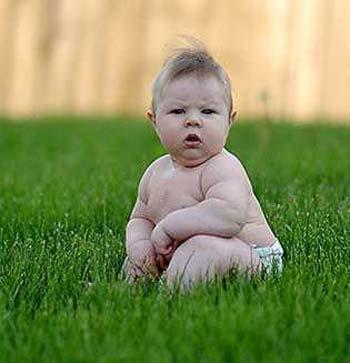Source: China Daily
12-16-2008 13:40
BEIJING, Dec. 15 -- Scientists may have figured out one reason some people reach for the french fries instead of an apple. It could be a gene that's been linked to an increased risk of obesity.
 |
| Scientists may have figured out one reason some people reach for the french fries instead of an apple. |
A study of children found those with a common variation of the gene tend to overeat high-calorie foods. They ate 100 extra calories per meal, which over the long term can put on weight, said Colin Palmer, who led the study at the University of Dundee in Scotland.
The findings don't mean that everyone with that version of the gene will eat too much and become obese, he said. They just might have a tendency to eat more fattening foods.
"It's still your choice," he said. "This gene will not make you overweight if you do not overeat."
Palmer said the results support the theory that childhood obesity today could be connected to the widespread availability and low cost of high-calorie foods. The research is published in Thursday's New England Journal of Medicine.
Last year, scientists discovered the gene, named FTO, was linked to obesity but they didn't know why. Most of the other genes thought to affect body weight influence appetite.
Palmer and his colleagues wanted to know if the FTO gene also had to do with eating behavior, or whether it involved how the body burns calories. They studied over 2,700 Scottish children ages 4 to 10 and put a group of them through extensive tests.
Nearly two-thirds of the children had at least one copy of the gene variant, about the same proportion found in last year's study of mostly white Europeans. That study found that those with one copy of the gene variant had a 30 percent increased risk of obesity, and carriers of two copies had almost a 70 percent increased risk.
The gene variation is also found in other populations; the frequency in Chinese is about half that of Europeans.
After confirming the obesity link in the larger Scottish group, the researchers examined 97 of the children. They took a number of measurements, including body fat and metabolic rate.
The children were given three meals at school to evaluate their eating behavior. The meal included a mix of fruits and vegetables, ham, cheese, potato chips, chocolate candies and bread rolls.
The researchers found that children with the gene variation showed no difference in metabolic rates, levels of physical activity or the amount of food eaten.
"The only thing we could find was the fact that they were eating much richer foods," said Palmer.
On average, those with the gene variant ate 100 calories more than those without it.
Dr. Rudolph Leibel, an obesity researcher at Columbia University in New York, said getting good measurements of how much someone eats is difficult, but the Scottish study did it in a closely controlled manner.
He said the overeating may be driven more by the need for calories than a preference for fatty foods. Fat is just a good way to get those extra calories.
"Bite for bite, there are more calories in a Big Mac than there are in an apple," said Leibel, who wrote an editorial that accompanies the study in the journal.
A recent study in the Amish suggested the variant's effects could be blunted with hours of physical activity. The lead author of that study, Evadnie Rampersaud of the University of Miami, noted that only 76 Scottish children completed all three meal tests.
"While the results are intriguing, larger studies are needed to fully explore this hypothesis," she said in an e-mail.
Palmer, the Scottish researcher, said there's no practical reason to screen people for the gene variation; there's likely to be many genes that affect obesity.
And whether you have it or not, he said, the advice would be the same: Eat healthy and exercise.
Palmer's DNA was included in last year's study but he doesn't know his status — though he does have a weakness for potato chips.
Editor:Yang Jie
